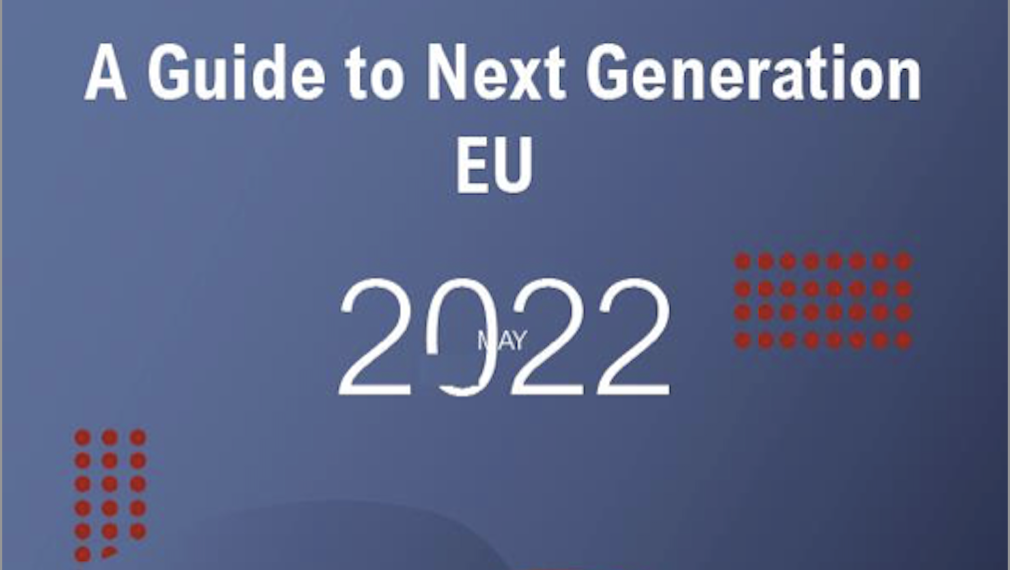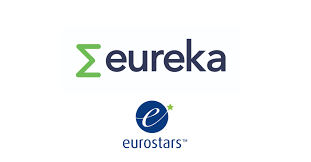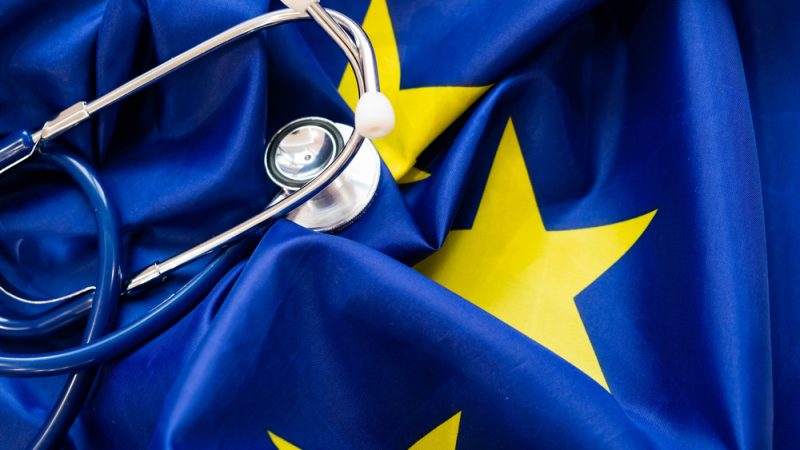News |
|
Today the EAIC releases the second update of its flagship report: “NextGenerationEU Guide, for the industry to better understand and seize its opportunities”. The first edition was released back in July 2021 when the first National Recovery Plans were being adopted by the European Commission.
Novelties of the second update The guide includes a synthesis of the content of each National Recovery Plan, providing details on priorities for reforms and investments to help the recovery. Altogether, the 27 plans represent a total of €723 bn in grants or loans foreseen to be spent or lent over four years. Each country had indicated in their plan the share that will go to Green or Digital recovery, on average 37% and 20% will go respectively to these priorities. The newly updated report includes fresh information on programmes and national calls that are programmed or are ongoing, “This report intends to give transparency on the opportunities that NGEU is offering to SMEs and Industries throughout Europe, showing how effective the EU recovery plan is” said Alex Alvarez, EAIC Board member and coordinator of the report. IPCEI and REPowerEU The guide also makes focus on the international cooperation through the Important Projects of Common European Interest (IPCEI) mechanism that allows member States to provide additional support in view of helping strategic European Value Chains. This mechanism was already used in the Semiconductor or foreseen in Batteries and Hydrogen before the pandemia but the COVID crisis has put stress on Europe’s dependency on foreign technology. This mechanism is welcome as it helps to finance with state aid further collaboration between several countries in research and innovation. 5 areas are covered by IPCEI: Microelectronics, Batteries, Decarbonisation & Hydrogen, Health, and Cloud Services. The new update includes examples of projects that are already being kick-started exactly one year after the launch of the plan. We can highlight a few examples of projects already being funded:
Click here to download the guide Click here to download the Press Release.
0 Comments
At European level a number of funding programmes exist, some are more fit to SMEs than others. The EUROSTARS programme, managed by the Eureka Network is specially designed for SMES. It allows to facilitate international expansion of SMES, boosting their industrial scaling.
Eurostars is the largest international funding programme for SMEs wishing to collaborate on R&D projects that create innovative products, processes or services for commercialisation. Your consortium must spotlight an innovative SME as the main project participant. This program seeks to fund projects of innovative European companies, helping to overcome the valley of death they may go through. New call for proposals This year opens the opportunity to actively participate in EUROSTARS 3. With two cut-offs dates per year (One closed on 24th March , next one is closing on 15th September 2022), the EUROSTARS programme has been supporting innovative SMEs to develop collaborative and market-oriented R&D transnational projects since 2008. The EUROSTARS Programme involves 37 Countries, overall, more than 1 billion euro for the period 2021-2027 is available. The evaluation of proposals is managed by the Eureka Secretariat, i.e. centrally and independently. EUROSTARS evaluation Once the proposal has been submitted, the evaluation mechanism is set in motion, ensuring that, in as little as 15 to 16 weeks, the applicants can be informed of the outcome of the evaluation. During this time, the proposal is evaluated by 3 international technical experts, in addition to a financial, legal, and ethical evaluation to ensure EU principles. Once these activities are completed, a last step is carried out by an Independent Experts Panel (IEP), whose main mission is to finalise the list of best projects according to all evaluation criteria. The strength of this evaluation allows funding to be allocated to the best projects until the budget allocation for each countries is exhausted. Rules for participation differ per country 37 countries provide funding under the Eurostars programmes, each country has specific conditions for participation. It is important to check the rules for each participant prior applying, these rules can be viewed on the Eurostars programme website or contacting the responsible organisation at national level. Tailored event for EAIC members On 6 July the Eurostars Programme Manager at Eureka Network, Camilla Del Latte will present the programme to EAIC members in a dedicated webinar. If you are interested to take part, please contact EAIC secretariat sending a mail to [email protected]. Article courtesy of EAIC Member FI Group. Several European programmes are implementing EU’s political priorities in the health area. With the new EU multiannual financial framework 2021-2027 and COVID-19 pandemic, budget and programmes focusing on Health have evolved significantly. Four main programmes can be identified in the area of Health: Horizon Europe, the Innovative Health Initiative and the new post-COVID EU4Health programme and Digital Europe. Here we present the main funding opportunities and upcoming calls in health sector.
Horizon Europe to tackle the key challenges in healthcare The aim of the ongoing Horizon Europe (HEU) framework programme (2021-2027) is to strengthen the connection between scientific and technological innovation, as well as tackle the key societal challenges, like equal opportunities for healthcare across the Europe, demographic changes, ageing, shift from treating illnesses into maintaining wellness and predictive healthcare, relationship with changing environments and diseases, chronic diseases, pandemic preparedness. Horizon Europe framework program is to improve and protect the health and wellbeing of citizens of all ages by generating new knowledge and developing innovative solutions to prevent, diagnose, monitor, treat and cure diseases. The aim is also to support and enable patients' participation and self-management. Health related HEU funding calls The funding calls for 2022 focus on different aspects of health such as health throughout the life course, noncommunicable and rare diseases, innovative tools, technologies and digital solutions for health and care, including personalised medicine, environmental and social health determinants, infectious diseases, including poverty related and neglected diseases, health care systems. Apart from this, cluster 4 (Digital, Industry and Space) and cluster 6 (Food, Bioeconomy, Natural Resources, Agriculture and Environment) also offer opportunities to integrate life sciences, medicine, and health-tech. Eligibility and funding model under Horizon Europe All European legal entities are eligible to apply for research and innovation Action (RIA), innovation action (IA) and coordination and support actions (CSAs). Minimum of three partners from member states of the EU should be present in the consortium. The funding rates are beneficial for participants, ranging from 70% to 100% depending on the maturity of the innovation and on the type of the participant. Innovative Health Initiative (IHI) The Innovative Health Initiative (IHI) is a public-private partnership (PPP) between the European Union and the five European industry association representing a wide area of companies in the fields of pharmaceuticals (EFPIA), medical technology (MedTech Europe), medical imaging (COCIR), vaccine industry (Vaccines Europe) and biotechnology (EuropaBio). IHI is building on the success of its predecessor Innovative Medicines Initiative (IMI), with expertise of 14 years and almost 200 projects. What will be funded in 2022 in IHI? IHI encourages the development of tools, data, platforms, technologies, and processes that will in turn facilitate the prevention, diagnosis, treatment, and management of diseases, especially in areas where there is an unmet public health need. The first single-stage calls opening in the end of June 2022 focuses on nneurological diseases, oncology, and other diseases with unmet needs such as:
EU4Health EU4Health programme is ambitiously designed to support the health policy goals of the European union and to address the resilience of European healthcare systems. It provides funding to national authorities, health organisations and other bodies through grants and public procurement, contributing to a healthier Europe. It is the fourth and largest of the EU’s health programmes with a budget of 5.3 B€. Eu4Health is one of the EU's responses to the COVID-19 pandemic. With a total funding of 5.3 B€ over the next seven years, EU4Health represents an unprecedented level of financial commitment to improve and foster health in Europe. EU4Health will go beyond the COVID-19 crisis, supporting actions on disease prevention, reducing inequalities, the digital transformation of health systems, the reinforcement of the health system and the healthcare workforce. It will pave the way to a strong European Health Union that will improve and safeguard the health of all EU citizens. The specific objectives of EU4Health are:
Funding model for EU4Health The EU4Health programme co-funds the eligible costs of the selected actions at the level of 60% (normal co-funding rate) or 80%, in case of exceptional utility. The criteria for exceptional utility are fulfilled if: a) at least 30 % of the budget of the proposed action is allocated to Member States whose GNI per inhabitant is less than 90 % of the Union average; and b) bodies from at least 14 participating Member States participate in the action, of which at least four are Member States whose GNI per inhabitant is less than 90 % of the Union average. In-Kind contributions: Applicants are expected to provide their own funding, including through the contribution of staff employed by the beneficiaries included in the budget. e.g. staff already on the payroll of universities or hospitals can be assigned to the project and their work time spent on the project will be funded up to 60% co-financing rate (80% in case of “exceptional utility” projects). The remainder (40% or 20%) must be covered by the beneficiaries. Digital Europe Digital Europe is the first EU programme that aims to accelerate the recovery and drive the digital transformation of Europe. Worth 7.6 B€ this programme provides funding for projects in five crucial areas: supercomputing, artificial intelligence, cybersecurity, advanced digital skills, and ensuring the wide use of digital technologies across the economy and society. Several of the applications of these five crucial areas will be in healthcare sector. Digital Europe is fine-tuned to fill the gap between the research of digital technologies and their deployment, and to bring the results of research to the market - for the benefit of Europe's citizens and businesses, and in particular SMEs. Investments under the Digital Europe programme supports the Union’s twin objectives of a green transition and digital transformation and strengthens the Union’s resilience and strategic autonomy. What will the Digital Europe Programme fund? The Digital Europe Programme will provide strategic funding to several challenges, supporting projects in five key capacity areas: in supercomputing, artificial intelligence, cybersecurity, advanced digital skills, and ensuring a wide use of digital technologies across the economy and society, including through Digital Innovation Hubs. With a planned overall budget it aims to accelerate the economic recovery and shape the digital transformation of Europe’s society and economy, bringing benefits to everyone, but in particular to small and medium-sized enterprises. The Digital Europe Programme will complement the funding available through other EU programmes, such as the Horizon Europe programme for research and innovation and the Connecting Europe Facility for digital infrastructure, the Recovery and Resilience Facility and the Structural funds, to name a few. It is a part of the ongoing long-term EU budget, the Multiannual Financial Framework 2021-2027. Article courtesy of EAIC Member Spinverse |
Categories
All
Archives
July 2024
|




 RSS Feed
RSS Feed
